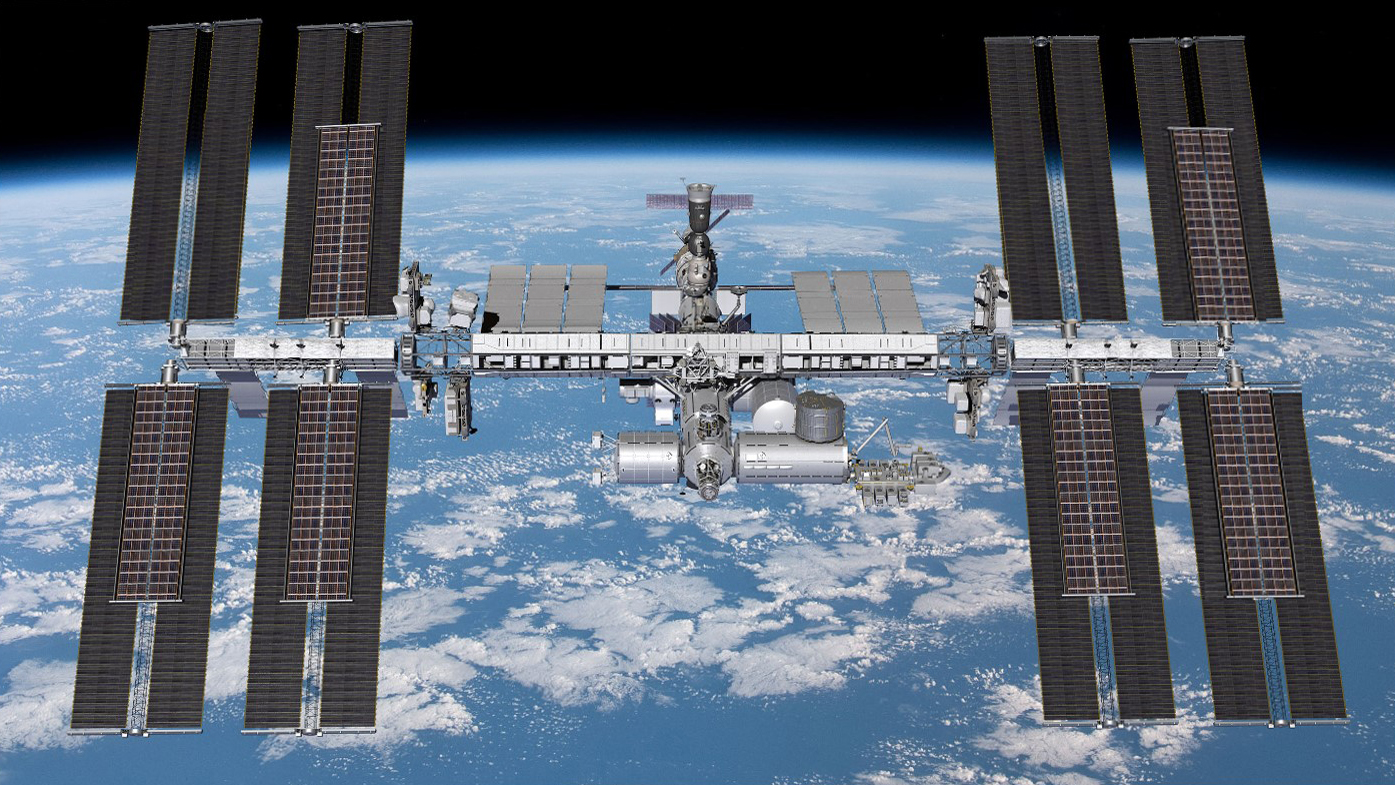Watch spacewalking astronauts add a new solar array to International Space Station today
The International Space Station is scheduled to get another power boost today (June 25), and you can watch the solar array deployment live here.
NASA astronaut Shane Kimbrough and Thomas Pesquet, an astronaut from the European Space Agency, will exit the Quest airlock around 8 a.m. EDT (1200 GMT), as long as the last-minute preparations complete on schedule. Starting at 6:30 a.m. EDT (1030 GMT), you can watch their activities live here in the window above, courtesy of NASA TV, or directly via the agency's website.
This will be the third spacewalk for the two Expedition 65 astronauts in the last two weeks. On June 16, Pesquet and Kimbrough fought through technical issues and problems with the equipment to partially install one of the arrays. Then they completed the first array unfurling on Sunday (June 20).
Pesquet, spacewalking for the fifth time, will wear the spacesuit with red stripes on it to designate him as lead spacewalker, known as extravehicular crewmember 1 (EV1). Kimbrough, wearing a plain white spacesuit as EV2, will be on his ninth spacewalk, according to NASA.
The spacewalkers will also be on their fifth extravehicular activity together, following the two Expedition 65 spacewalks earlier this month and another two excursions during Expedition 50, in 2017.
Related: Spacewalking astronauts prepare International Space Station for new solar arrays
In an ISS blog post Thursday (June 24), NASA said the spacewalk will "continue new roll-out solar array installation work", including installing a second ISS Roll-Out Solar Array (iROSA) on the station’s P6 truss structure.
Get the Space.com Newsletter
Breaking space news, the latest updates on rocket launches, skywatching events and more!
The iROSAs are gradually being deployed in front of the eight original solar arrays that were placed on the ISS between 2000 and 2009. All of the older arrays have exceeded their 15-year design life and are showing signs of degraded power production in orbit.
These power upgrades are part of a multi-year effort to increase science production on the station, as the ISS agreement currently extends to 2024 and several partners hope to make it to 2028 or even later.

Once the various iROSAs are installed, electricity supply on the space station will be boosted by 20% to 30%. Earlier this year, NASA tackled power upgrades from another angle, as it wrapped up a more than four-year effort to put in newer and more efficient batteries on the ISS.
As with the other spacewalks earlier this month, Pesquet and Kimbrough will be supported by NASA Expedition 65 astronauts Megan McArthur and Mark Vande Hei, from inside the ISS. NASA Mission Control will support the crew from the ground, with a socially distanced team in Houston.
NASA says the spacewalk will be the 241st in support of station assembly, maintenance, and upgrades.
Follow Elizabeth Howell on Twitter @howellspace. Follow us on Twitter @Spacedotcom and on Facebook.
Join our Space Forums to keep talking space on the latest missions, night sky and more! And if you have a news tip, correction or comment, let us know at: community@space.com.

Elizabeth Howell (she/her), Ph.D., was a staff writer in the spaceflight channel between 2022 and 2024 specializing in Canadian space news. She was contributing writer for Space.com for 10 years from 2012 to 2024. Elizabeth's reporting includes multiple exclusives with the White House, leading world coverage about a lost-and-found space tomato on the International Space Station, witnessing five human spaceflight launches on two continents, flying parabolic, working inside a spacesuit, and participating in a simulated Mars mission. Her latest book, "Why Am I Taller?" (ECW Press, 2022) is co-written with astronaut Dave Williams.









